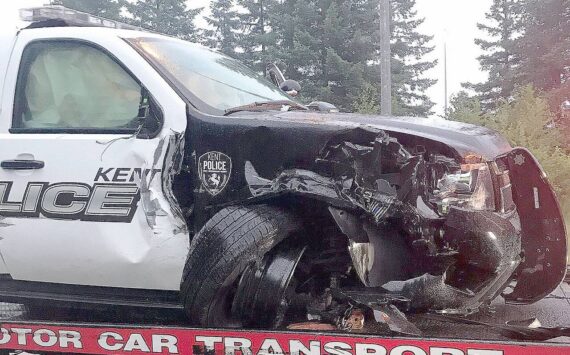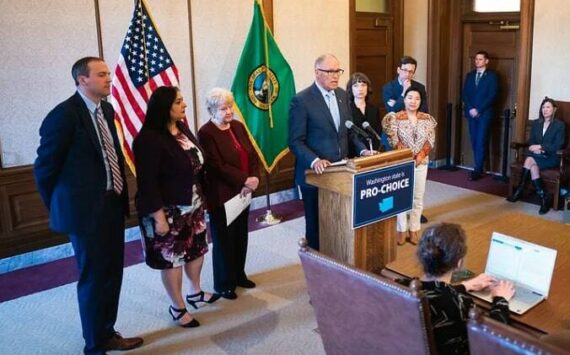OLYMPIA — A big pay hike from lawmakers and a large graduating class of cadets is boosting Washington State Patrol efforts to ease a persistent shortage of troopers.
This summer, troopers will receive a 16 percent raise while sergeants, lieutenants and captains will get 20 percent as a result of the state transportation budget passed by the Legislature in the waning hours of the regular legislative session. In Washington, the State Patrol is funded through the transportation budget.
On Wednesday, the State Patrol plans to graduate 49 cadets who, once deployed, will put a dent in the 145 existing vacancies in the patrol division.
“That would bring our (vacancy) numbers down to their lowest levels in a long time,” Capt. Monica Alexander said. “We feel like we’re moving in the right direction. What the Legislature has done for us is huge and we believe it is going to make a significant difference.”
It adds an extra degree of happy to this week’s ceremony in the Capitol.
“Graduation is always very exciting,” she said. “It’s a good time for us as we welcome new members to our State Patrol family. And they’ll be excited because they are going to get a big raise.”
A study carried out in 2015 found low salaries hampered the State Patrol’s ability to recruit and retain. Consultants recommended changes in pay, hiring and recruitment to boost morale and stem departures.
At that time, the State Patrol was losing seven to nine troopers a month. It could not recruit enough new troopers to fill existing vacancies as well as openings created when newer hires defected for local law enforcement agencies.
In response, lawmakers provided an across-the-board pay bump in the 2016 session. Collective bargaining agreements negotiated last fall by the governor’s Office of Financial Management and unions representing troopers and officers provided increases to align salaries with those offered by competing agencies.
Those agreements are paid for in the transportation budget, which Gov. Jay Inslee is expected to sign sometime in May. Agreements with most other state worker unions are covered in the operating budget which lawmakers have yet to act on.
As spelled out in the budget, troopers stand to receive pay hikes of 16 percent on July 1 and another 3 percent in July 2018. Sergeants, lieutenants and captains would get a 20 percent raise this July and another 3 percent a year later. Money also is provided for step increases for longevity and specialty pay.
Starting pay for new troopers will increase $748 a month, pushing their annual earnings from the current $56,100 to $65,076, based on information provided by the State Patrol.
New sergeants will see their salary rise from $86,304 to $103,564 while new lieutenants will earn $121,550, up from $101,292.
With the July raises, salaries of troopers and sergeants will be in line with what the state says is the average earnings of officers in equivalent positions in six other Washington law enforcement agencies as of July 1, 2016. Those agencies are the sheriff’s offices in Snohomish and King counties and the police departments in Seattle, Vancouver, Tacoma and Spokane. An entry-level deputy in Snohomish County earns almost $60,000 a year.
There are signs the prospect of better pay stabilized the State Patrol ranks this year.
Through March 17, there had been 12 retirements. But only one trooper departed to join another law enforcement agency in the state, Alexander said.
“We definitely have turned around some of the retention issues,” she said, noting a new training class for troopers will begin next month.
The transportation budget also provides raises for roughly 1,500 employees of Washington State Ferries in accordance with collective bargaining agreements.
Most workers will receive raises of 5 percent spread over the two-year budget period. About 40 senior employees of the International Organization Masters, Mates and Pilots will receive increases ranging from 8 percent to 24 percent as a result of an award from an arbitrator during negotiations.
Approval of the pay increase is welcome news, and it has had a positive impact on morale, said Brian Mannion, a Washington State Ferries spokesman.
Those larger raises will help retain senior officers, many of whom are eligible for retirement, to train the next generation of mariners, Mannion said. And, at the same time, the increases provide incentive for junior employees to strive.
Jerry Cornfield: 360-352-8623; jcornfield@heraldnet.com Twitter: @dospueblos







